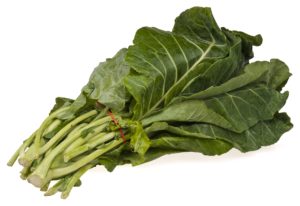The more people believe in something, the more accepted it becomes. The more we think something to be “wrong” the less acceptable it becomes. We eat the way our parent’s taught us, what tastes good, what is convenient, and hope that we stay healthy.
We don’t know why we practice a specific behavior if we never stop to question it. Most people do not pause to question their dietary choices until they become sick.

Meat and Milk
The meat and dairy industries, fast food restaurants, the government – even your medical doctor – would like you to believe that consuming animal products are necessary for your health and vitality. The dairy council is a significant marketer of “nutritional” information to governments, medical schools, and society, in general. Remember the milk mustache ads? The concept that only the milk of a cow can provide a human with the calcium needed to build strong bones is FALSE.
While cow milk does provide a decent source of calcium, no standard other than the National Dairy Council considers it the best source. Building (and maintaining) strong bones is best achieved by eating plenty of dark leafy green vegetables, daily sunshine/Vitamin D supplementation, and regularly participating in weight-bearing exercise. Consuming dairy does not prevent osteoporosis. Americans and Europeans, who consume the most dairy products, have the highest incidence of osteoporosis.
Calcium is essential for maintaining bone mineral density, but it is not the only nutrient. Vitamin K  and vitamin D are just as important. Research is still scarce, but current evidence suggests that supplementing or eating a diet rich in vitamin K1, via its effect on calcium regulation, helps prevent osteoporosis.¹ Vitamin K1 (phylloquinone) and calcium are both abundant in dark, leafy green vegetables. Excellent sources of K1 vegetables include kale, mustard greens, collards, swiss chard, and spinach. Cook the leaves to maximize your intake.
and vitamin D are just as important. Research is still scarce, but current evidence suggests that supplementing or eating a diet rich in vitamin K1, via its effect on calcium regulation, helps prevent osteoporosis.¹ Vitamin K1 (phylloquinone) and calcium are both abundant in dark, leafy green vegetables. Excellent sources of K1 vegetables include kale, mustard greens, collards, swiss chard, and spinach. Cook the leaves to maximize your intake.
There is nothing healthy about the over-consumption of meat and dairy. Nutritional advice is big business, helping us to deal with the problems of the western diet, while also supporting it, so it too, can sustain itself. Unfortunately, most of the nutrition advice that we are exposed to – er, marketed at – is propaganda. The ‘experts’ are often paid by the food industry to sell more vitamin enhanced processed foods.
We’ve heard this “moo” propaganda for so many years that it has become part of our thinking. However, that thinking is quickly changing as more studies reveal that the people who consume the most animal products also suffer the most disease. According to Dr. Campell, the author of the “The China Study,” casein, which makes up 87% of cow’s milk protein, promotes all stages of the cancer process. Although Dr. Campell’s studies may be controversial, almost no-one can argue that eating a high-fiber, whole foods plant-based diet diminishes health.
Plant foods simply do not promote disease, even at the highest levels of intake.
Related Posts:
Sources:
1- Braam LA, e. (2018). Vitamin K1 supplementation retards bone loss in postmenopausal women between 50 and 60 years of age. – PubMed – NCBI from https://www.ncbi.nlm.nih.gov/pubmed/14506950